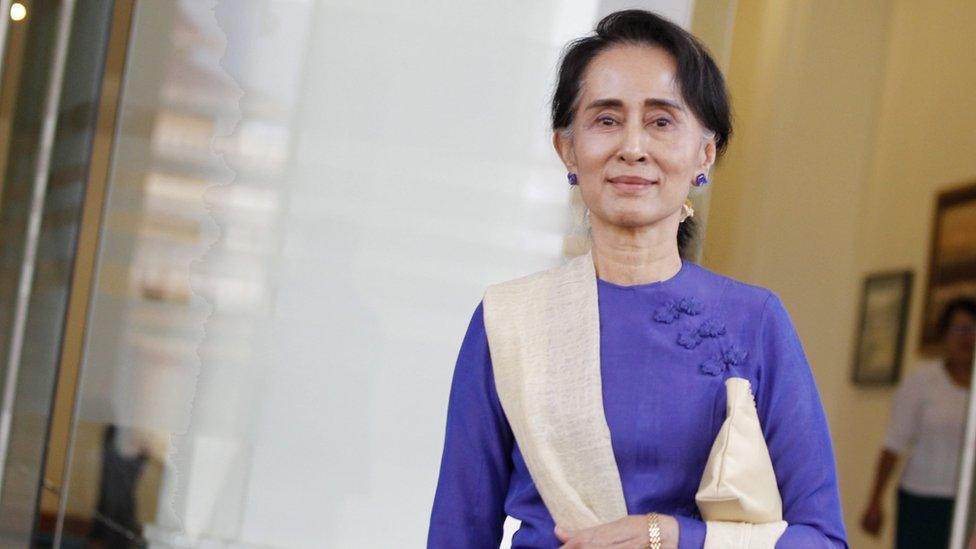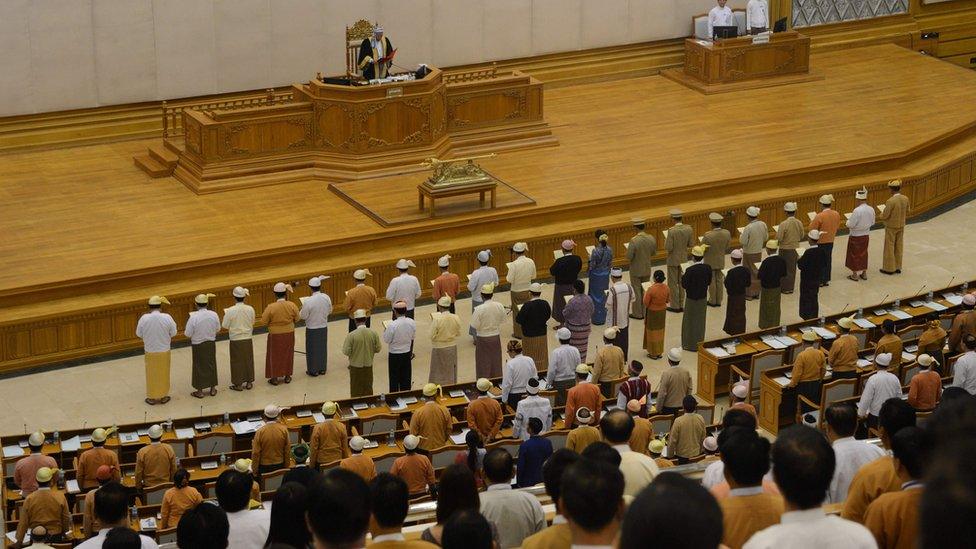Myanmar parliament approves Aung San Suu Kyi 'PM-like' role
- Published

Ms Suu Kyi has previously said she would be "above the president"
Myanmar's parliament has passed a bill that gives Aung San Suu Kyi a role similar to that of prime minister.
The Lower House passed the bill to create the post of "state counsellor", which now requires only presidential approval to become law.
Unelected military representatives holding a quarter of parliamentary seats boycotted the vote, calling the bill unconstitutional.
Ms Suu Kyi's party won elections but she is not allowed to be president.
Clause 59(f) of the Burmese constitution bars candidates with foreign spouses or children, and Ms Suu Kyi's two sons hold British passports.
The clause was widely considered to have been written specifically to prevent Ms Suu Kyi from taking office.

The military retain a quarter of seats in the parliament
The bill has gone through both the lower and upper houses and now must be approved by President Htin Kyaw.
Htin Kyaw is Myanmar's first elected civilian leader in more than 50 years, and a close aide to Ms Suu Kyi.

At the heart of power: Analysis by Jonah Fisher, BBC News, Naypyidaw
The Burmese parliament in Naypyidaw has not seen a session like this before.
The army representatives refused to vote, stood in protest and complained repeatedly that this new bill is unconstitutional.
But it was all in vain - they are now hopelessly outnumbered by elected MPs from Aung San Suu Kyi's party.
So this - the first bill proposed by the civilian government - passed unchanged.
Having been denied the presidency by a clause in the constitution, this job will formally place Ms Suu Kyi at the heart of Myanmar's new administration.

In addition to state counsellor, Ms Suu Kyi will also be foreign minister and minister in the president's office.
The NLD won 80% of contested seats in the elections last year, ending decades of military rule.
But the army has kept considerable power. In addition to its seats in parliament, it heads three key ministries - defence, home affairs and border affairs.